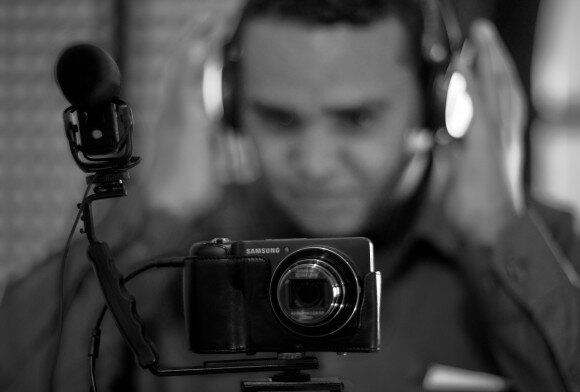
Author: John Smock
Photographer: John Smock
Sometimes during trainings you get participants who arrive with solid skills and a developed drive to be better journalists. It’s great when it happens. More often you get participants with little experience, an opaque idea of what journalism is and a stifling lack of confidence. The single most rewarding thing about training is seeing the light bulb go on in a participant who falls into the second group. Mustafa Khalifa was one of those participants.
Mustafa is the Germa corresponded in Ghat, a tiny town on the southwestern border of Libya. Like so many of Libya’s new generation of journalists, he began working as a reporter only two years ago during the revolution. Mustafa is Tuareg, a nomadic ethnic minority that live throughout much of the Sahara and Sahel. When he arrived on the first day of training in Sebha he barely said a word to the trainers even though he speaks some English. When asked a question, he would look stricken. “I didn’t know anyone,” he said. “I was nervous because I didn’t know what to expect.”
At first Mustafa struggled with the technology and the demands of the workshop format. By day three he had found a voice. His early photo story about a Pakistani tailor and his shop was among the best in the group. With encouragement he began to come out his shell. He even began to try out his English on me during breaks and flashing his broad smile. By my last day in Sebha he was using the elaborate camera kit with ease.
Mustafa explained the transformation in football terms. He played goalie while in school. When he trained for a match and was well prepared, he was better able to trust himself to take the kinds risks that being a good goalie requires. “When I am confident I trust my instincts,” he said. “I like the camera equipment and learning how to make videos.”